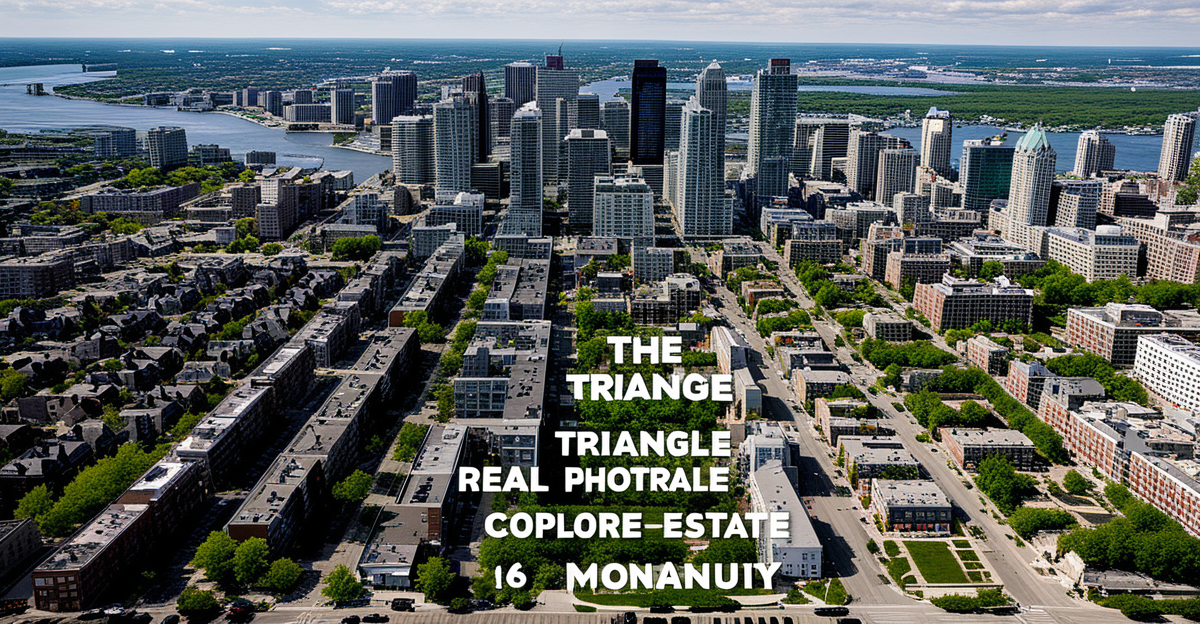Montreal’s Triangle neighborhood is rapidly emerging as a dynamic hub for homebuyers and investors. With diverse property options and competitive prices, it offers a unique blend of urban energy and community spirit. Understanding current market trends here unlocks promising opportunities for those seeking a vibrant, accessible place to live or invest in the city’s evolving landscape.
The Triangle Real Estate Market Overview: Current Trends and Key Insights
Anyone looking to tap into the opportunities of the Triangle real estate should begin by understanding the unique dynamics that drive the market in Raleigh, Durham, and Chapel Hill. The region stands out for its continued population growth, diverse economic drivers, and range of housing options. Demand for homes remains strong, resulting in median home prices that have consistently risen over recent years.
En parallèle : Essential Strategies for UK Expats to Safeguard Property Investments While Living Overseas
Recent data show Raleigh’s inventory tightening, with new listings quickly absorbed, especially among first-time homebuyers and families seeking proximity to top schools and research facilities. In Durham, revitalized neighborhoods and new construction are attracting both local buyers and investors. Chapel Hill, renowned for its academic influence and community atmosphere, has seen sustained appreciation in property values, underlining its appeal to both residents and long-term investors.
Buyers should expect competitive bidding on well-located properties, while sellers benefit from shorter market cycles. For investors, the rental market is robust, fueled by student demand and employment growth. Looking ahead, experts forecast continued resilience, buoyed by local job creation and infrastructure improvements. This landscape offers opportunities in townhomes, condos, and luxury estates, making the Triangle region a prime destination in North Carolina real estate.
A lire également : Top financial guarantees for real estate in belgium: an overview
Featured Developments and Property Types in the Triangle Region
The Triangle’s real estate landscape features a diverse mix of new construction homes, affordable housing, and luxury dwellings. High-demand neighborhoods along Namur metro in Montreal—such as Westbury Montréal, Rouge Condominiums, and Le Namur—deliver a unique blend of living spaces suited for a range of budgets, lifestyles, and preferences.
New construction options in these developments emphasize modern architecture, energy efficiency, and convenience. Buyers can choose from studios, one- to three-bedroom units, and larger condos, spanning from 400 to 1,300 sq. ft. Price points start at $319,000 for many entry-level options, with upscale units exceeding $400,000. Amenities in these buildings comfortably cover resident needs: on-site fitness centers, pools, terraces, indoor parking, and access to green spaces.
Townhomes and condos are especially popular in areas linked to strong public transportation and urban services. Families and professionals value the proximity to schools, essential shopping, and easy metro access. The region also caters to luxury buyers, with premium units providing advanced smart home technology, high-end finishes, and private outdoor spaces.
Land for sale remains available for those aiming to customize their investment or develop future properties within this vibrant, well-connected neighborhood.
Neighborhood Highlights, Amenities, and Community Life
Neighborhoods in the Triangle region distinguish themselves through distinct amenities, walkability, and lifestyle features. Cameron Village in Raleigh stands out with its blend of trendy dining, walkable shopping districts, and proximity to green spaces like Pullen Park. Families often prioritize access to top-ranked school districts, notably in neighborhoods such as Chapel Hill’s Southern Village or Cary’s Preston area.
Public transportation access varies, with downtown Durham offering convenient bus routes and transit connectivity, easing commutes to Research Triangle Park and local universities. Walkability in Triangle neighborhoods is highest in central urban areas, where residents can access restaurants, boutique stores, and recreational trails by foot. In newer subdivisions and suburban communities, residents rely more on car travel but benefit from nearby playgrounds, sports fields, and community centers.
Community life thrives with regular events: farmers’ markets, outdoor concerts, and neighborhood festivals. Residents also pay attention to crime rates and environmental risks—such as flood zone designations—when choosing a home. Areas near greenways and parks are prized for their safe, active environments and opportunities for socializing. This vibrant mix of amenities and strong school options shapes the Triangle’s reputation as one of the best places to live in North Carolina.
Investment Potential and Market Forecasts
Triangle real estate investment has shown resilience due to the region’s strong economic foundations and desirable lifestyle options. Current data signals that both home value trends in Durham and surrounding areas, like Raleigh suburbs and Chapel Hill, continue to experience moderate appreciation, supported by ongoing demand from professionals and families. Market cycles in the Triangle have favored sellers for several years, yet fresh inventory from new development projects offers chances for buyers to enter or expand within this market.
Recent analysis suggests rental yields in the Triangle region average between 5% and 7% for well-located properties. Rental market trends remain robust, mainly due to consistent migration for employment at local universities, startups, and large tech firms. This stability offers attractive conditions for investors focusing on long-term rental properties or those interested in multifamily units.
Economic factors—such as job growth, low unemployment, and strong local institutions—are expected to impact Triangle real estate positively over the next several years. Forecasts from industry experts reveal sustained, if slightly cooling, appreciation rates for both residential and commercial properties. The region’s diverse economy and expanding infrastructure continue to strengthen confidence in future buying and selling decisions across housing segments.
Buying, Selling, and Financing in the Triangle
Precision:
To buy a home in the Triangle, first secure mortgage pre-approval. Next, partner with a skilled local real estate agent—preferably one familiar with Raleigh, Durham, or Chapel Hill—to search for suitable properties. Make an offer, schedule inspections, and navigate closing with careful review of legal documents.
To sell, begin with a market analysis, price competitively, stage the home, and market through professional channels before responding to offers and settling at closing.
Pathways for Buyers and Sellers
Navigating buying a home in the Triangle starts with financial assessment. Pre-approval helps clarify your budget, strengthens offers, and gives a competitive edge. Teaming with real estate agents Raleigh NC gives you local insight and negotiation support—vital in this fast-moving region.
For sellers, effective listing involves both staging and data-driven pricing. Professional agents advise on when to list, how to highlight features, and the best negotiation strategies.
Financing Strategies and Programs
Current mortgage rates in North Carolina remain historically competitive, though they reflect national trend shifts. First-time buyers often explore FHA, VA, or USDA loans to lower upfront costs. Many Triangle buyers benefit from state tax credits and incentive programs, such as down payment assistance or reduced property taxes for qualifying groups.
Consulting knowledgeable agents and mortgage specialists helps buyers and sellers interpret changing regulations, compare offers, and time their moves for optimal results.
Resources, Local Insights, and Noteworthy Listings
To assist with relocation to Raleigh-Durham, connect with seasoned local real estate professionals. Among the most trusted contacts, Triangle Real Estate & Asset Management stands out for their comprehensive services across acquisition, development, and property management in residential and commercial sectors. Their expertise streamlines property search and management for buyers, sellers, and investors exploring the vibrant Triangle market.
To explore available open houses in Raleigh-Durham, keep an eye on regularly updated regional news and listings. Especially for those tracking Triangle real estate news updates, local agencies often provide daily or weekly inventories of townhomes, luxury properties, condos, and homes near Research Triangle Park, catering to diverse preferences and investment strategies.
Investors interested in real estate development projects in the Triangle should consult agencies knowledgeable about the latest zoning changes, new builds, and market statistics. These professionals can explain differences in property taxes between Durham, Wake, and Orange counties, as well as highlight promising neighborhoods showing positive appreciation trends. For anyone considering property management services, many agencies in the Triangle offer tailored packages ideal for managing both single-family homes and multi-unit developments—supporting stress-free ownership and high occupancy rates.











